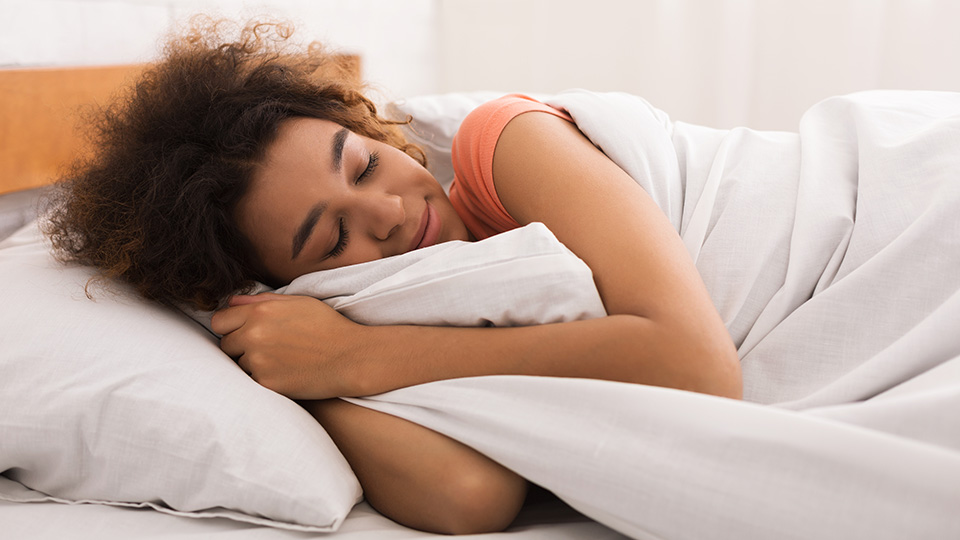13 Natural Ways to Fall Asleep Quickly

How long does it take you to fall asleep? The average time is about 10 to 20 minutes. If you fall asleep much faster, you may be sleep deprived. If you take much longer, you may find it difficult to get the recommended 7 to 8 hours of slumber.
The scientific name for trouble falling asleep is sleep onset latency, and it affects the efficiency of your sleep. Falling asleep on schedule helps you to enjoy adequate amounts of the later stages of deep sleep. Otherwise, your sleep may be less refreshing as well as too brief.
Your specific remedy may depend on what’s keeping you up at night. Experiment with these natural methods for falling asleep faster.
Changing Your Lifestyle
Your daily habits can have a big impact on what you experience at night. Adjusting your lifestyle could shorten sleep onset latency.
These strategies make it easier to fall asleep quickly:
1. Synchronize your schedule. Go to bed and wake up at regular times, even on weekends and holidays. You’ll be training your body and mind to develop a rhythm for when to become drowsy.
2. Eat light. Avoid eating foods high in calories or heavy on spices late in the day. If you want to snack, enjoy a piece of fruit or a warm glass of milk.
3. Use relaxation exercises. Deep breathing and progressive muscle relaxation are two popular methods for hastening sleep. It also helps to manage stress during the day and visualize pleasant images at bedtime.
4. Work out. Along with many other benefits, an active lifestyle enhances sleep. Aim for at least 150 minutes of moderate aerobic exercise each week.
5. Forget the clock. Worrying about falling asleep can keep you awake longer. Resist the urge to keep checking what time it is.
6. Leave the room. If you’re unable to relax, you may want to get out of bed. Go to another room and do something boring.
7. Limit alcohol and caffeine. Cut back on cocktails and coffee, especially in the later hours. Alcohol will interfere with the quality of your sleep. Coffee after about 2 pm may keep you alert hours later.
8. Keep a journal. Sleep issues can have many different causes. Recording your habits in a journal could enable you to spot patterns and help you talk with your doctor if you need to explore medical reasons.
Changing Your Surroundings
Your environment can work for you or against you. A few simple changes could make your nights more restful and your days more productive.
Try these techniques:
1. Block out noise. Keep your bedroom quiet. Turn on a fan or a pink noise recording to block out loud neighbors and car alarms.
2. Dim the lights. Darkness prepares your brain for sleep. Hang heavy curtains in your bedroom or wear a sleep mask. On the other hand, morning light will help you wake up and feel drowsy later in the day.
3. Adjust your temperature. Setting your bedroom thermostat to 60 to 67 degrees overnight is optimum for most adults. You may also feel sleepier after a warm bath or shower as your body cools down.
4. Turn off your devices. Set a curfew on watching TV and browsing online. Shutting off electronic devices at least two hours before bed will minimize your exposure to bright screens and excess stimulation.
5. Check your bedding. How old is your mattress? Visit a sleep store for the latest in memory foam mattresses, weighted blankets, and other products that might work for you.
Falling asleep quicker can increase the quantity and quality of your sleep. Try natural home remedies for reducing the time you spend tossing and turning and talk with your doctor if you need more assistance.
CLICK HERE to Explore Our Free Online Courses


Responses